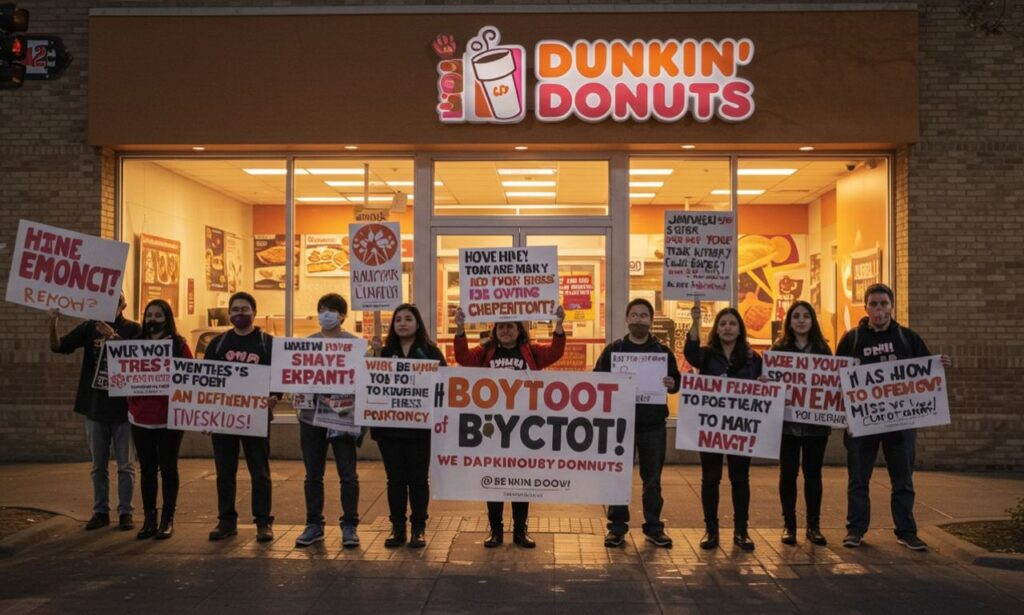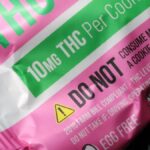The dunkin donuts boycott is making headlines once again, stirring strong emotions and raising questions about ethics, politics, and brand responsibility. As one of America’s favorite coffee and donut chains, Dunkin has millions of loyal fans. But recent actions by individual franchisees and alleged corporate decisions have sparked backlash from diverse communities. This article unpacks the full scope of the issue, exploring what led to the boycott, how people are reacting, and what it means for the company and its customers.
Dunkin Donuts Boycott: What Sparked the Outrage?
In 2024, a series of events snowballed into a public call to boycott Dunkin Donuts. It started with conservative groups claiming that Dunkin refused to advertise on Rumble, a video-sharing platform popular among right-wing audiences. Rumble’s CEO accused Dunkin of backing out over the platform’s political content, which many MAGA supporters viewed as censorship. Almost overnight, Dunkin found itself the target of a growing online boycott campaign.
To complicate matters further, a separate controversy ignited within another group of consumers. In one U.S. Dunkin franchise, customers spotted donuts decorated with the Israeli flag. Images went viral, and accusations spread that Dunkin was supporting Israel amid the ongoing conflict with Palestine. The internet reaction was swift, especially among pro-Palestinian activists, some of whom added Dunkin to broader boycott lists.
Despite these incidents originating from unrelated sources, they merged into a larger narrative: Dunkin Donuts had become a politically charged brand.
Franchise Model: A Complicating Factor
Before assigning blame to the entire corporation, it’s important to understand how Dunkin operates. Dunkin Donuts is a franchise-based company. This means that individual stores are independently owned and operated. While all stores follow general brand guidelines, they can vary greatly in day-to-day management and local decisions.
The Israeli-themed donut incident, for instance, happened in a single franchise, not a company-wide campaign. Still, because it bore the Dunkin logo, many interpreted it as a reflection of corporate values. Similarly, while Dunkin corporate allegedly refused to run ads on Rumble, local franchises have no influence over national ad strategies.
This mix of centralized branding and decentralized ownership makes boycotts more complex. People angry at one store’s actions may avoid Dunkin entirely, even if most stores had nothing to do with the controversy.
The Power of Social Media in Fueling the Dunkin Donuts Boycott
Social media played a critical role in amplifying the Dunkin Donuts boycott. Users across TikTok, Twitter (X), Reddit, and Instagram began posting about both incidents, urging others to stop supporting the brand. Viral hashtags like #BoycottDunkin and #DunkinSupportsIsrael began trending.
On Reddit, Muslim communities expressed confusion and concern. One thread in r/MuslimLounge featured conflicting reports about whether local stores were supporting Palestine or Israel. Some users stated that their local Dunkin stores displayed donation jars for Palestinian aid, while others claimed the stores refused to take a stance at all.
This created a fog of uncertainty. Without a clear statement from Dunkin corporate, rumors flourished. People began choosing sides based on social media posts, screenshots, and hearsay rather than verified information. And as we all know, once misinformation spreads online, it’s incredibly hard to undo.
Public Reaction: Divided and Heated
Reactions to the Dunkin Donuts boycott vary depending on political, religious, and ethical beliefs. MAGA supporters felt betrayed by what they perceived as corporate censorship. Meanwhile, pro-Palestinian advocates accused Dunkin of showing symbolic support for Israel.
Some consumers have chosen to distance themselves entirely from the brand. Others are taking a more measured approach—only avoiding stores confirmed to have participated in controversial actions. Then there are those who continue their daily Dunkin run, unfazed by the uproar.
This division is reflected in online discussions. On one side are boycott lists, viral videos, and trending hashtags. On the other, you’ll find posts defending individual franchises, emphasizing Dunkin’s decentralized structure and calling for more nuanced thinking.
Has Dunkin Responded to the Backlash?
So far, Dunkin has remained largely silent. No major public statement has been issued addressing the boycott directly. There’s been no clarification about the advertising decision with Rumble or any formal stance on the Middle East conflict.
This silence has only intensified the backlash. Many critics argue that Dunkin’s refusal to clarify its position implies guilt or avoidance. Others believe the company is trying to stay neutral in a deeply polarizing environment.
In contrast, companies like Ben & Jerry’s or Patagonia have taken bold political stances in the past—often winning praise from their target audience. Dunkin’s lack of response is a gamble. It may help them avoid alienating certain customers, but it also risks losing trust from those who expect corporate transparency.
Economic Impact of the Dunkin Donuts Boycott
While the online backlash is loud, there is no conclusive evidence yet that the boycott has had a major financial impact on Dunkin. The brand continues to dominate the coffee-and-donut market in many U.S. cities, and morning foot traffic appears steady in most areas.
However, reputation damage is harder to measure. If the controversy continues or expands into international markets, Dunkin could face longer-term consequences. Public trust is a valuable currency, and once it’s lost, regaining it takes time—and effort.
What Consumers Are Doing Now
Amid the boycott calls, many consumers are choosing alternatives. Independent coffee shops, local bakeries, and even other chains like Tim Hortons or Starbucks are gaining attention. Some consumers have taken to researching franchise owners, supporting only those who align with their values.
Others are calling for more accountability, asking Dunkin to publish clear ethical guidelines or ensure more transparency across franchises. There is also a push for clearer labeling of ownership so that consumers can make informed choices.
Why This Boycott Matters More Than Ever
This boycott isn’t just about donuts. It’s about how brands navigate political and ethical minefields in a hyper-connected world. Consumers today care about what companies stand for. They expect transparency, consistency, and accountability.
The Dunkin Donuts boycott serves as a reminder that even the most seemingly apolitical brands are not immune to controversy. Whether it’s advertising choices or franchise-level decisions, every action can carry political weight.
Conclusion
The dunkin donuts boycott is a case study in how modern consumer activism works. A mix of local incidents, political perception, and viral social media posts led to a nationwide backlash—against a company known more for coffee than controversy.
This moment shows how even seemingly harmless products can become symbols in larger cultural debates. For Dunkin, the road ahead may require clear communication, ethical reflection, and closer monitoring of franchise actions. For consumers, it’s a reminder that every purchase is, in some way, a statement.





